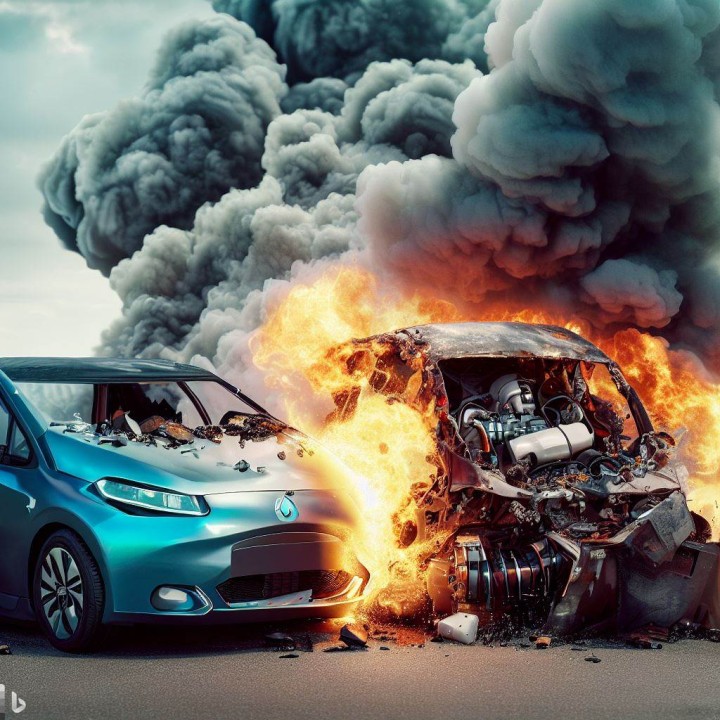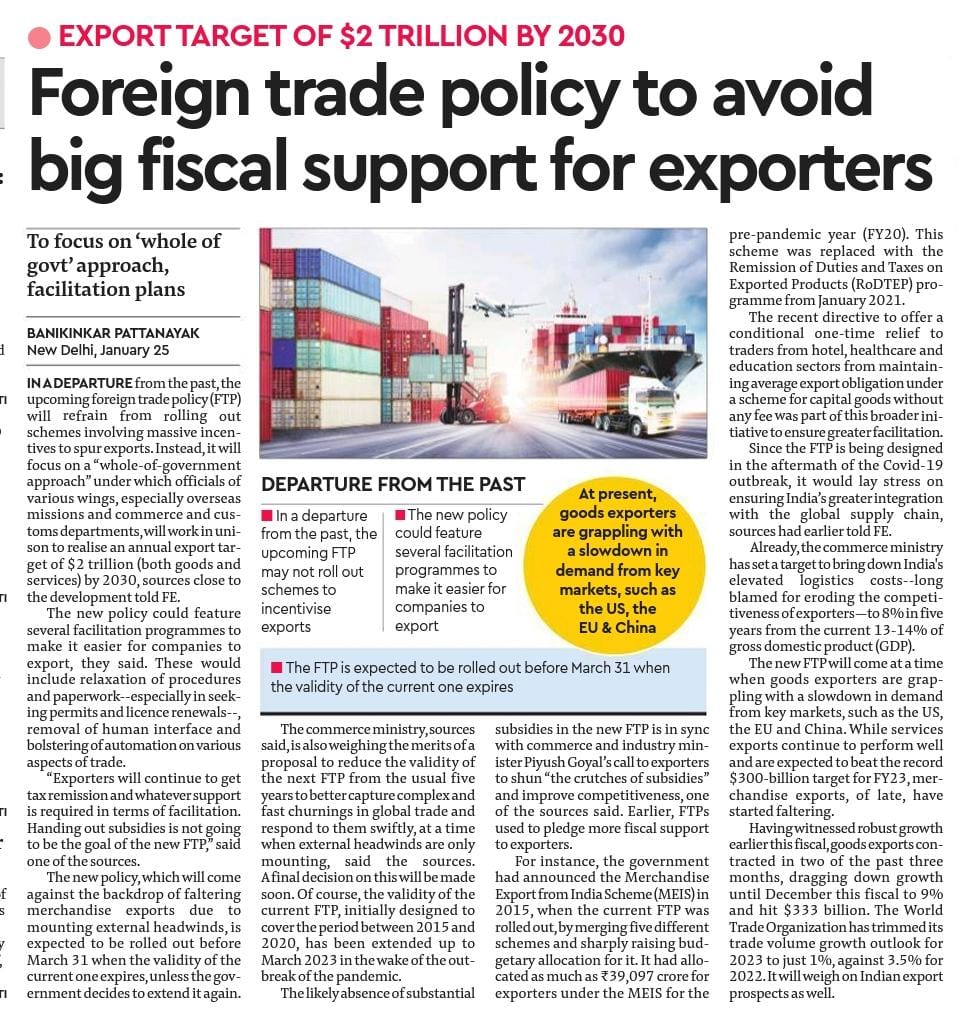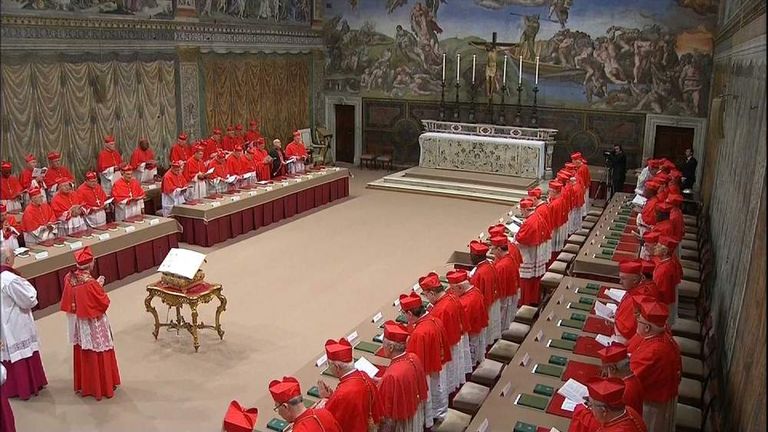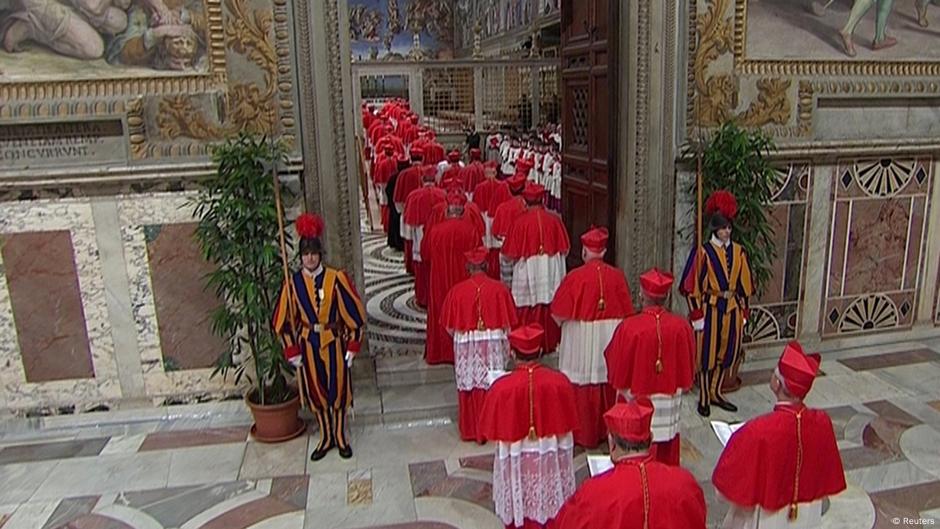Auto Dealers Double Down Against EV Sales Requirements

Table of Contents
Financial Concerns Driving Dealer Opposition to EV Sales Requirements
Dealerships face substantial financial hurdles in adapting to the increasing EV sales requirements. These challenges threaten their profitability and viability, leading to strong opposition against the mandates.
High upfront investment in EV infrastructure:
Dealers cite the significant costs associated with upgrading their facilities to accommodate EVs. This includes substantial investments in infrastructure, specialized tools, and training.
- Installation costs for high-powered chargers: Installing fast chargers capable of supporting the latest EVs represents a considerable expense, especially for larger dealership lots. The cost per charger can easily run into tens of thousands of dollars, and multiple chargers may be needed to meet demand.
- Employee training programs: Technicians need specialized training to service and repair EVs, requiring significant investment in training programs and updated certification. This adds another layer of cost to the transition.
- Inventory management challenges for EVs: Managing EV inventory presents unique logistical challenges, including specialized storage and handling requirements for batteries. This can impact both space and operational costs.
These costs are particularly burdensome for smaller dealerships with limited capital, potentially forcing them out of business if they cannot afford the necessary upgrades to meet EV sales quotas.
Lower profit margins on EVs:
Dealerships frequently report lower profit margins on EV sales compared to gasoline-powered vehicles. This is due to several factors that create a less financially attractive proposition.
- Reduced service revenue from EVs: EVs have significantly fewer moving parts than internal combustion engine (ICE) vehicles, resulting in less frequent and less expensive maintenance and repair needs. This translates to lower service revenue for dealerships.
- Intense competition among EV manufacturers: The EV market is increasingly competitive, with manufacturers often aggressively pricing their vehicles, squeezing dealer profits. This price pressure directly impacts profitability.
- Impact of government subsidies on dealer profits: While government subsidies can incentivize EV purchases for consumers, they sometimes reduce the overall profit margin for dealerships.
This reduced profitability makes meeting EV sales quotas challenging and less financially attractive for dealers, further fueling their opposition.
Challenges in Consumer Demand and Market Readiness for EV Sales Requirements
Even with growing awareness, several significant barriers hinder consumer adoption of EVs, impacting dealerships' ability to meet mandated sales targets.
Limited consumer awareness and understanding of EVs:
Many potential buyers remain hesitant to adopt EVs due to various concerns and misconceptions.
- Lack of public charging stations: Range anxiety, the fear of running out of battery charge, is a significant deterrent for many consumers. Inadequate public charging infrastructure exacerbates this concern.
- Concerns about battery lifespan and replacement costs: The cost and lifespan of EV batteries remain a concern for consumers, particularly regarding potential long-term replacement expenses.
- Misconceptions about EV performance and capabilities: Some consumers still harbor misconceptions about EV performance, charging times, and overall capabilities.
This lack of consumer demand directly impacts dealers' ability to meet mandated EV sales targets, highlighting a significant market reality.
Insufficient charging infrastructure hindering EV adoption:
The lack of widespread, reliable, and readily accessible public charging infrastructure remains a primary obstacle to widespread EV adoption. This issue directly impacts consumer confidence and purchasing decisions.
- Geographic disparities in charging station availability: Charging stations are often unevenly distributed, leaving some areas underserved and hindering EV adoption in those regions.
- Long wait times at charging stations: Congestion at charging stations, especially during peak hours, can deter potential EV buyers.
- Inconsistency in charging standards and compatibility: The lack of standardization in charging technologies adds to consumer confusion and inconvenience.
This infrastructure deficit contributes to range anxiety and discourages potential EV buyers, creating a significant challenge for dealers trying to meet EV sales requirements.
The Political and Regulatory Landscape Surrounding EV Sales Requirements
The political and regulatory environment surrounding EV sales requirements further contributes to dealer resistance.
Government regulations and pressure tactics:
Dealers often argue that the implementation of EV sales requirements is often rushed and lacks adequate support for dealerships to adapt effectively.
- Unrealistic sales targets: Mandated sales targets may be unrealistic given the current market conditions and consumer demand.
- Lack of government incentives for dealer infrastructure upgrades: Insufficient government support for dealer infrastructure upgrades increases the financial burden on dealerships.
- Inconsistent regulations across different states/regions: Varying regulations across different jurisdictions create complexities and challenges for dealerships operating in multiple locations.
The perception of heavy-handed government intervention fuels the resistance amongst dealers, creating a climate of uncertainty and frustration.
Lobbying efforts and industry pushback:
The automotive industry is actively lobbying against stringent EV sales mandates, advocating for a more gradual and market-driven transition.
- Industry associations advocating for delayed implementation: Industry associations represent the collective voice of dealerships, pushing for more realistic timelines and greater support.
- Calls for more government support for infrastructure development: Industry groups are advocating for increased government investment in charging infrastructure and other supportive measures.
- Alternative solutions proposed to address climate change concerns: The industry suggests alternative approaches to achieve environmental goals, potentially lessening the reliance on stringent EV sales mandates.
This organized opposition highlights the deep-seated concerns within the automotive industry and the need for a more collaborative approach.
Conclusion
Auto dealers' resistance to increasing EV sales requirements stems from a complex interplay of financial concerns, market realities, and regulatory pressures. While the transition to electric vehicles is crucial for environmental sustainability, addressing the legitimate challenges faced by dealerships is vital for a successful and equitable transformation of the automotive industry. Finding a balance between ambitious sustainability goals and supporting the industry's adaptation is key. Further discussion and collaboration are necessary to overcome these challenges and ensure the smooth implementation of future EV sales requirements and a successful future for both the industry and the environment. We need a proactive approach to navigate these EV sales requirements and find solutions that work for everyone involved. A collaborative effort is crucial to address these concerns and facilitate a successful transition to a sustainable automotive future.

Featured Posts
-
 A Comprehensive Map Of The Countrys Top Business Growth Areas
Apr 29, 2025
A Comprehensive Map Of The Countrys Top Business Growth Areas
Apr 29, 2025 -
 Trumps Decision A Posthumous Pardon For Pete Rose
Apr 29, 2025
Trumps Decision A Posthumous Pardon For Pete Rose
Apr 29, 2025 -
 Anchor Brewing Companys Closure A Legacy In Beer Ends
Apr 29, 2025
Anchor Brewing Companys Closure A Legacy In Beer Ends
Apr 29, 2025 -
 Fiscal Support And Inflation The Ecbs Post Pandemic Assessment
Apr 29, 2025
Fiscal Support And Inflation The Ecbs Post Pandemic Assessment
Apr 29, 2025 -
 2025 Nfl Season Justin Herbert And The Chargers Head To Brazil
Apr 29, 2025
2025 Nfl Season Justin Herbert And The Chargers Head To Brazil
Apr 29, 2025
Latest Posts
-
 Debate Surrounding Convicted Cardinals Vote In Upcoming Conclave
Apr 29, 2025
Debate Surrounding Convicted Cardinals Vote In Upcoming Conclave
Apr 29, 2025 -
 Convicted Cardinal Claims Right To Participate In Papal Conclave
Apr 29, 2025
Convicted Cardinal Claims Right To Participate In Papal Conclave
Apr 29, 2025 -
 Papal Conclave The Case Of The Convicted Cardinals Vote
Apr 29, 2025
Papal Conclave The Case Of The Convicted Cardinals Vote
Apr 29, 2025 -
 Papal Conclave Disqualified Cardinals Claim To Vote
Apr 29, 2025
Papal Conclave Disqualified Cardinals Claim To Vote
Apr 29, 2025 -
 Debate Over Convicted Cardinals Participation In Papal Election
Apr 29, 2025
Debate Over Convicted Cardinals Participation In Papal Election
Apr 29, 2025
